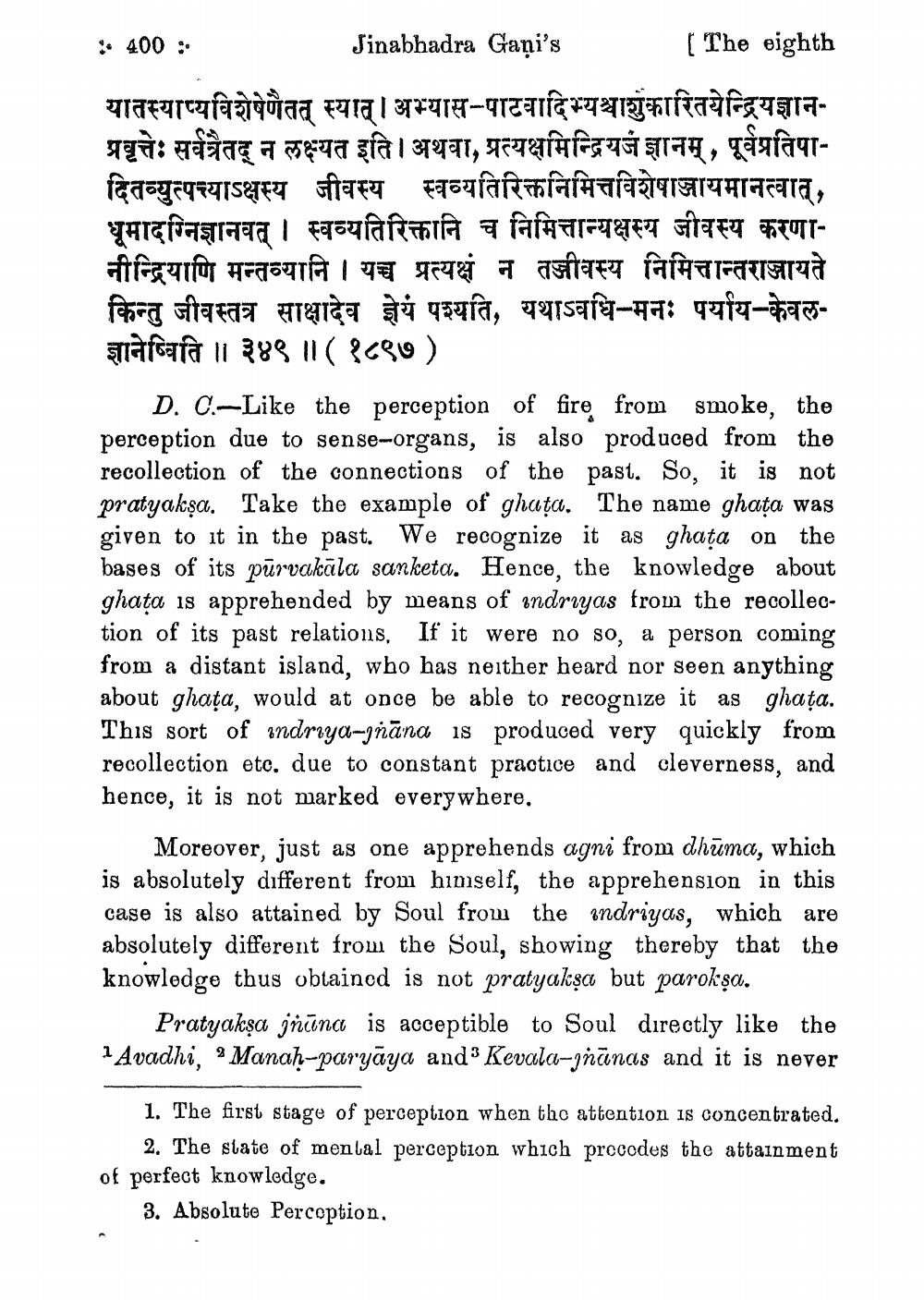________________
Jinabhadra Gani's
यातस्याप्यविशेषेणैतत् स्यात् । अभ्यास - पाटवादिभ्यश्राशुकारितयेन्द्रियज्ञानप्रवृत्तेः सर्वत्रैतद् न लक्ष्यत इति । अथवा, प्रत्यक्षमिन्द्रियजं ज्ञानम्, पूर्वप्रतिपादितव्युत्पच्याsक्षस्य जीवस्य स्वव्यतिरिक्तनिमित्तविशेषाज्जायमानत्वात्, धूमादग्निज्ञानवत् । स्वव्यतिरिक्तानि च निमित्तान्यक्षस्य जीवस्य करणानीन्द्रियाणि मन्तव्यानि । यच्च प्रत्यक्षं न तज्जीवस्य निमित्तान्तराज्जायते किन्तु जीवस्तत्र साक्षादेव ज्ञेयं पश्यति, यथाऽवधि - मनः पर्याय - केवलज्ञानेष्विति ॥ ३४९ ॥ ( १८९७ )
: 400:
[The eighth
D. C-Like the perception of fire from smoke, the perception due to sense-organs, is also produced from the recollection of the connections of the past. So, it is not pratyakṣa. Take the example of ghata. The name ghata was given to it in the past. We recognize it as ghata on the bases of its purvakāla sanketa. Hence, the knowledge about ghata is apprehended by means of indriyas from the recollection of its past relations. If it were no so, a person coming from a distant island, who has neither heard nor seen anything about ghata, would at once be able to recognize it as ghata. This sort of andriya-jñāna is produced very quickly from recollection etc. due to constant practice and cleverness, and hence, it is not marked everywhere.
Moreover, just as one apprehends agni from dhuma, which is absolutely different from himself, the apprehension in this case is also attained by Soul from the andriyas, which are absolutely different from the Soul, showing thereby that the knowledge thus obtained is not pratyakṣa but parokṣa.
Pratyakṣa jnuna is acceptible to Soul directly like the 1Avadhi, Manaḥ-paryāya and3 Kevala-jñānas and it is never
2
1. The first stage of perception when the attention is concentrated. 2. The state of mental perception which precedes the attainment of perfect knowledge.
3. Absolute Perception.




